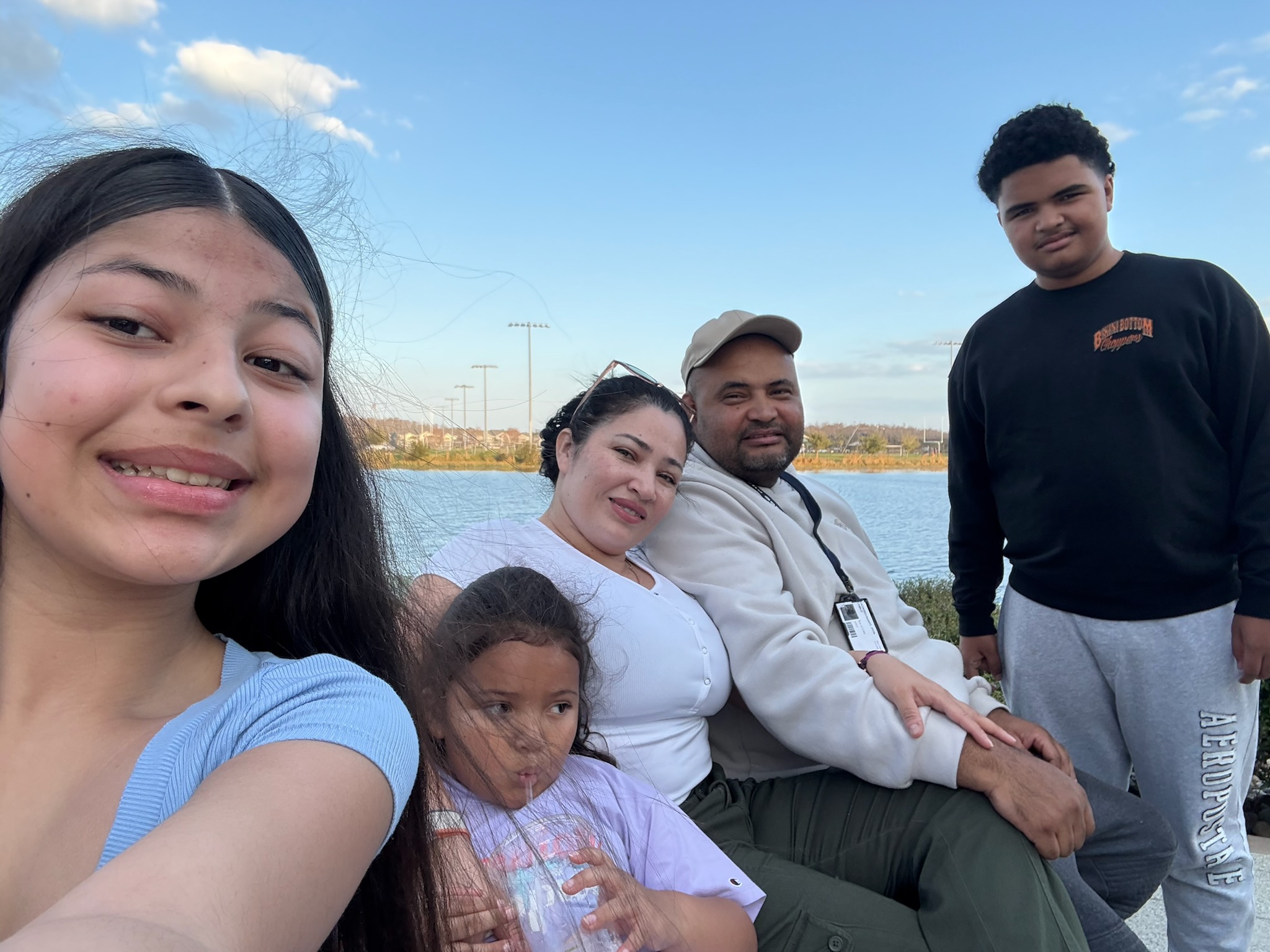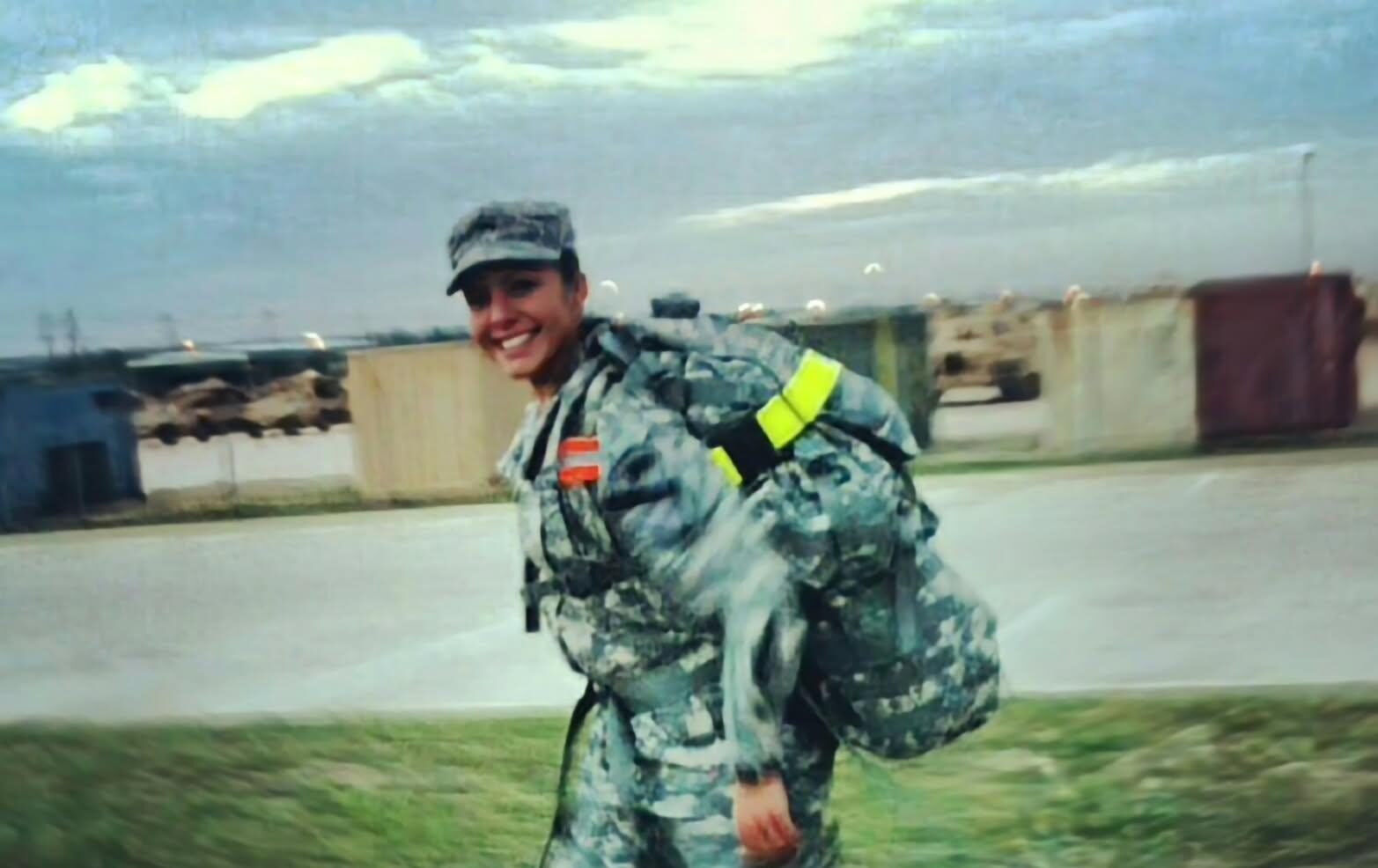Financial Assistance Eases Recovery for Veteran
Growing up, Jhon Cadavid always knew he wanted to be in the military. He had long looked to the military to find security and pay for college while also serving a larger purpose.
He enlisted in the Army in 2004 and deployed three times—twice to Iraq and once to Afghanistan. Each deployment was more than a year.
Jhon originally thought he would stay in for one contract then get out to go to college, but he enjoyed serving in the Army so much, he stayed for 12 years.
Because of a chronic back injury that required surgery, he was medically retired in 2016 after reaching the rank of staff sergeant. He also lives with PTSD because of his three combat deployments.
The transition from military to civilian life was challenging for Jhon, whose wife, Janeth, is his caregiver. The couple has four children. One is an adult and does not live in the home. The three children at home are ages 6 to 16. His wife was unable to get a caregiver stipend, and Jhon was having difficulty managing his PTSD. He began to have substance abuse issues to self-medicate for his PTSD.
“I want to say such a huge thanks. …I’m so glad you are out there helping people.” – Jhon Cadavid, Army veteran
“Last year was a really bad year for me,” said Jhon, who underwent three months of inpatient substance-abuse treatment at a VA hospital in 2024. “I ended up in a treatment facility in the VA that helps people with substance abuse. I was there for three months.”
During that time, he was not working, and bills piled up. He asked his social worker for guidance. She gave him a list of resources that included Operation Homefront’s Critical Financial Assistance Program®, which provides vital short-term support to military families facing financial hardships.
Thanks to the generosity of Operation Homefront donors, such as Wounded Warrior Project, Jhon received about $2,100 for utilities, an auto payment, and emergency food assistance.
Knowing his family was taken care of while he focused on sobriety made the journey less stressful.
“I’m much, much, much, better,” Jhon said about successfully completing his treatment program and now being five months sober. “Some days can be bad, but the medicine for the PTSD and therapy really help a lot. … I’m enjoying spending time with my kids and my wife.”
Jhon now works in a manufacturing plant making sure the high-tech equipment is running properly. So far, the work has not exacerbated his back issues.
Without Operation Homefront and its donors, Jhon said, he doesn’t know where his family would be.
“I want to say such a huge thanks,” Jhon said. “It made my recovery easier. Having to think about financial struggles at home while trying to do better can be detrimental (to sobriety). When this help came in, it eased up the stress, and that helped me graduate successfully from the program. I’m so glad you are out there helping people.”
Since 2011, Operation Homefront has fulfilled more than 58,000 requests and provided more than $44 million through its Critical Financial Assistance Program to help military families stay strong, stable, and secure.




